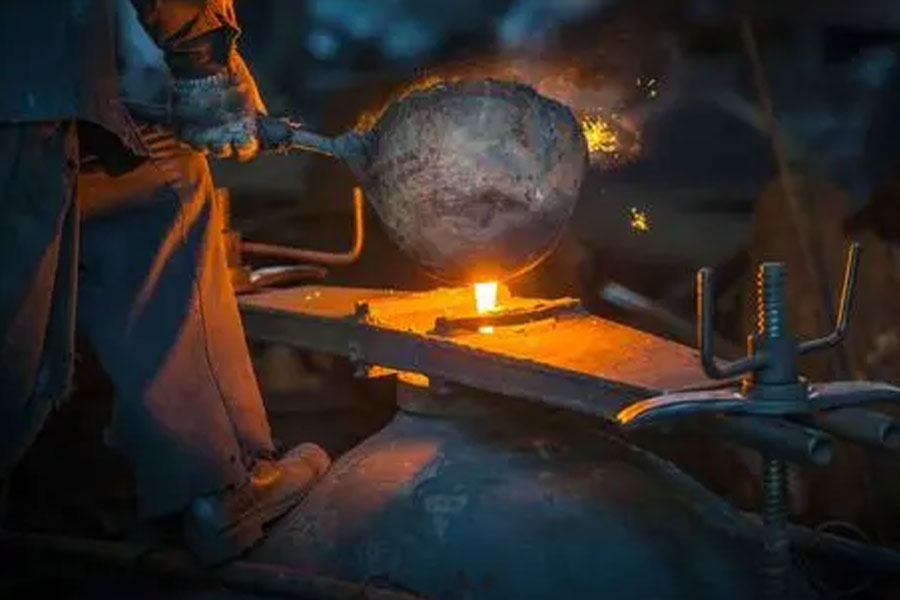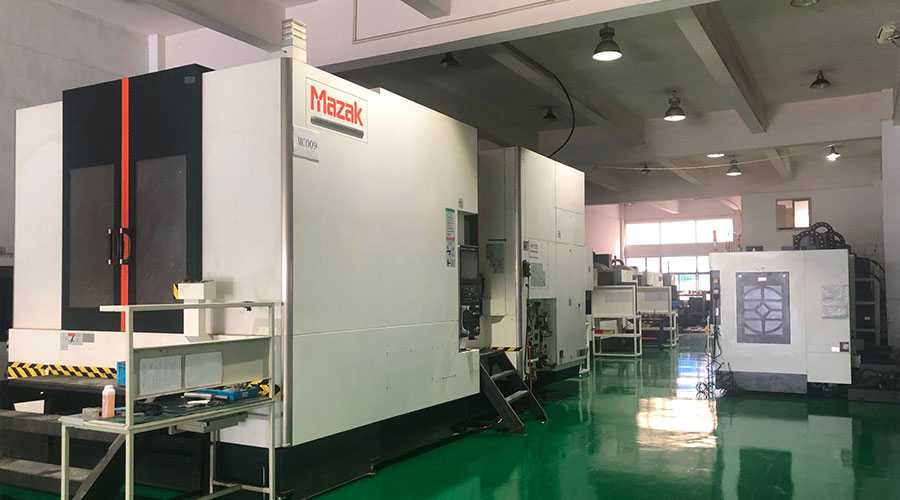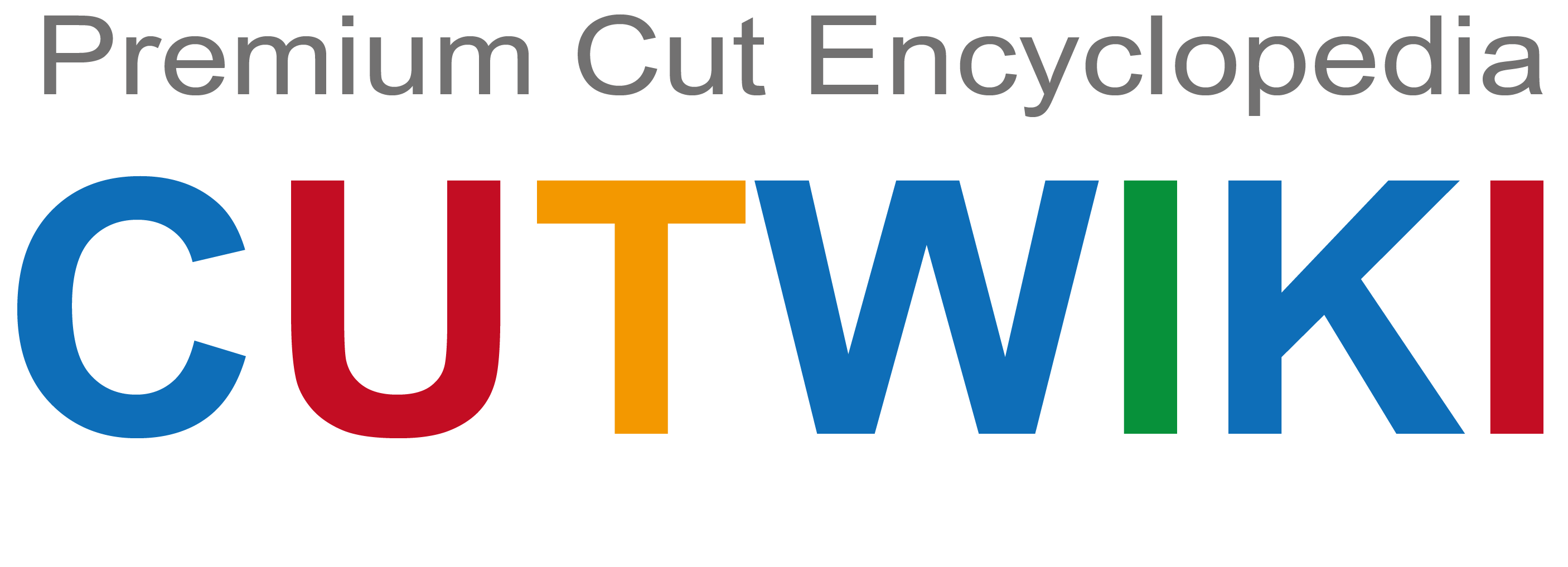Since the “Twelfth Five-Year Plan”, China’s foundry industry has continued to develop steadily, but the growth rate has slowed down significantly. Like other industries in the national economy, it has entered a new normal of development.
What is the current development situation of China’s foundry industry and what are the main problems facing it? What is the development trend of China’s foundry industry during the “13th Five-Year Plan” period? What are the guiding ideologies, strategies, goals and main tasks of industry development? What related policies and measures will be introduced? A few days ago, the China Foundry Association issued the full text of the “13th Five-Year Development Plan for the Foundry Industry” (hereinafter referred to as the “Plan”) to answer the above questions in detail.

Key development tasks directly point to industry problems
The “Plan” pointed out the main problems facing China’s foundry industry: the foundry industry still has a large number of backward production capacity, overcapacity in most areas has increased, key castings in a few areas have not yet met the requirements of the main engine, quality and brand awareness are not strong, and extensive development methods are not fundamental. change. The foundry industry standard system does not meet the needs of the market economy, and the vocational education and training system does not meet the needs of industry development.
Wen Ping, executive vice president and secretary-general of China Foundry Association, said that in order to adapt to the strategy of a strong manufacturing country and build China into a powerful foundry country, the foundry industry will face very arduous transformation and development tasks during the “13th Five-Year Plan” period. Therefore, the “Plan” puts forward the key tasks of the foundry industry during the “13th Five-Year Plan” period.
- – One is to accelerate the elimination of backward production capacity in the foundry industry. Continue to deepen the implementation of the foundry industry access system, and strengthen the formulation of policies for environmental protection and elimination of backward production capacity through the industrial policy guidance of the national foundry industry access management, promote the implementation of supporting policies for the development of local related industries, and actively resolve the foundry industry through market driving The contradiction of overcapacity leads to the concentration of production capacity to superior production capacity.
- – The second is to focus on overcoming the “bottleneck” in the manufacture of a number of key castings in the high-end equipment manufacturing industry. In particular, it has overcome the core casting technology of key castings required in the fields of energy and power, rail transit, aerospace and other fields, and has overcome the manufacturing of basic castings such as high-pressure and large-flow high-end hydraulic castings for construction machinery.
- – The third is the research on key common technologies and the priority development of major technical equipment. In order to improve the technical level of China’s foundry industry and improve the quality of casting products, it is important to develop a batch of materials, production, technology, quality inspection and repair, energy saving and emission reduction, resource regeneration and recycling, engineering simulation and informatization, and intelligent manufacturing. Research on key common casting technology. At the same time, breakthroughs have been made in the development and application of a number of major technical equipment in the fields of advanced automated casting equipment, waste sand regeneration, high-efficiency and energy-saving melting equipment, and foundry 3D printing equipment.
- – Fourth is to promote the innovation-driven development of the foundry industry. Promote the construction of a technological innovation system with enterprises as the main body, market-oriented, and a combination of production, education, research and application, continue to support the development of industry research institutions, and vigorously improve the construction level of new research institutions such as the China Green Casting Research Institute. Continue to cultivate a group of key common technology research institutions, industry alliances and collaborative innovation work platforms in industries such as die casting technology, wear-resistant materials, precision casting and other industries in sub-industry or thematic areas to promote the innovative development of the foundry industry. Establish a complete information sharing platform for scientific and technological achievements, accelerate the transformation and industrialization of scientific and technological achievements, promote the docking of production and demand between foundry enterprises and mainframe enterprises, and break the manufacturing “bottleneck” of key castings that restrict the key development areas of mainframes.
- – The fifth is to promote the in-depth implementation of the “integration of industrialization and industrialization” in the foundry industry, and use information technology and intelligent manufacturing technology to promote the upgrading of the traditional foundry industry.
- – Sixth, promote the formation of a new low-carbon circular development model for the entire industry. Increase the application of advanced energy-saving and environmentally-friendly technologies, processes and equipment in the casting field, promote the implementation of the green casting concept in the whole process of casting production by foundry enterprises, and promote the development of low-carbon, circular and intensive green casting in the foundry industry.
In addition, during the “13th Five-Year Plan” period, the key tasks of the foundry industry include: vigorously promote the quality and brand building of the foundry industry; improve the construction level of the existing foundry industry clusters (parks), and build characteristic foundry industry clusters (parks); Guided by the transformation and upgrading needs of the foundry industry, accelerate the development of modern productive service industries in the foundry industry; accelerate the formulation of foundry industry group standards that meet market needs, and build a new type of foundry standard system that meets the needs of the market and innovation; establish and improve the foundry industry Level talent training system and mechanism, vigorously develop vocational education in the foundry industry; establish a global perspective, implement the international development strategy of “going out”, promote international exchanges and cooperation in the foundry field; grasp the great opportunity of the country’s vigorous development of the cultural industry, Vigorously promote the construction of foundry industry culture.
Towards the development goal of founding a powerful country
The “Planning” predicts that low-to-medium-speed growth will become the new normal for the development of the foundry industry during the “13th Five-Year Plan” period. Under the new normal, the foundry industry will face new development opportunities. The structure of the foundry industry will accelerate adjustment and the industrial layout will be further optimized. The integration of industrialization and industrialization and innovation drive will become the new engine for the development of the foundry industry. Environmental protection and occupational health and safety will be significantly improved. Talent training models at all levels that meet the needs of development will be gradually established. Therefore, Wen Ping introduced the development goals of the “Plan” under the above development trends.
Increase the concentration of the foundry industry and realize the transformation from scale to efficiency. Since 2000, China’s casting output has ranked first in the world. In 2014, China’s casting output reached 46.2 million tons, accounting for 44.6% of the world’s casting output.
During the “Twelfth Five-Year Plan” period, the growth rate of China’s casting output slowed down. During the “13th Five-Year Plan” period, in order to adapt to the development of China’s equipment manufacturing industry and the needs of the international market, China’s total casting output will show a medium-to-low growth trend. The scale. In addition, during the “Thirteenth Five-Year Plan” period, through market competition and the implementation of the policy of increasing the elimination of backward production capacity, the number of foundry enterprises has decreased year by year, and the concentration of the foundry industry will further increase. It is estimated that by 2020, the number of foundry companies will be reduced to less than 15,000, and the output of casting companies (about 4,500) that account for 30% of the total number of companies will reach more than 80% of the total output of castings. At the same time, the average scale of foundry enterprises will be further increased. In the industrial fields of automobiles, internal combustion engines, machine tools, power generation equipment, electric power, and rail transit, a number of large-scale and specialized foundry enterprises with high quality levels will be formed, and a number of independent foundry enterprises will be formed. Leading casting company with innovative ability and international competitiveness.
Conquer the production technology of high-end and key castings. At present, with overcapacity in most fields in China’s foundry industry, some high-end key castings (such as high-pressure and large-flow hydraulic parts, gas turbine single crystal blades, etc.) still cannot meet the quality requirements of domestic mainframes and major technical equipment, and they have become high-end equipment manufacturing industries. The “bottleneck” of development. One of the core tasks of the development of China’s foundry industry during the “13th Five-Year Plan” period is to focus on breaking through a number of key castings that affect the development of high-end equipment manufacturing industries. It is estimated that by 2020, China can basically realize the independent production of key castings required for major domestic equipment, such as high-end hydraulic castings for construction machinery, large-scale energy castings, and core castings in the fields of rail transit, aerospace, etc.
The casting material structure is further optimized. In order to meet the needs of the downstream host market, the material structure of China’s castings has been further optimized. Among them, the output of ductile iron and aluminum alloy castings has gradually increased. It is estimated that by 2020, the proportion of nodular iron castings (including vermicular graphite iron castings) in iron castings in China will increase from 37% in 2014 to about 42%, and the output of light alloy castings such as aluminum and magnesium will account for the proportion of total casting output. Will increase from 13% in 2014 to about 20%.
Energy saving and emission reduction have reached a new level. Although the development of China’s foundry industry has made great progress in recent years, the industry as a whole is still in an extensive development mode, with obvious characteristics of high investment, high consumption, high pollution, low output, and low efficiency, especially in energy saving, emission reduction and pollution. Insufficient attention and insufficient investment in governance and other aspects have severely restricted the sustainable development of the foundry industry.
During the “13th Five-Year Plan” period, with the further improvement of China’s laws, regulations and standards on environmental protection, energy consumption, safe production, and occupational health and safety, it will further promote the foundry industry to increase investment in related fields. It is estimated that by 2020, the comprehensive energy consumption per ton of castings in China will be reduced by 10% compared to 2015; the utilization rate of foundry waste (used) sand will be further improved, and the annual regeneration of waste foundry sand will reach more than 3 million tons, especially in accordance with the “Foundry Industry” “Access Conditions” enterprises meet the national environmental protection emission standards, and further promote the development of the foundry industry towards low-carbon, circular and intensive green casting.
In addition, the “Plan” also formulated six development strategies of “Quality and Brand, Innovation Driven, Green Casting, Structural Optimization, Lean Management, and Talent Training”. The required foundry group standard system and work system, reasonable establishment of the foundry technical skills occupation system, open up the industry talent growth path, strengthen industry management, give full play to the role of social organizations and other policy recommendations.
Link to this article : Solve The Development Problems Of The Foundry Industry
 Sheet metal, Copper Milling, carbon steel,online laser cutting service, 3D printing, precision CNC machining services for heavy equipment, construction, agriculture and hydraulic industries. Suitable for plastics and rare alloys machining. It can turn parts up to 15.7 inches in diameter. Processes include swiss machining,broaching, turning, milling, boring and threading. It also provides metal polishing, painting, surface grinding and shaft straightening services. The production range(include aluminum die casting and zinc die casting) is up to 50,000 pieces. Suitable for screw, coupling, bearing, pump, gearbox housing, drum dryer and rotary feed valve applications.PTJ will strategize with you to provide the most cost-effective services to help you reach your target,Welcome to Contact us ( [email protected] ) directly for your new project.
Sheet metal, Copper Milling, carbon steel,online laser cutting service, 3D printing, precision CNC machining services for heavy equipment, construction, agriculture and hydraulic industries. Suitable for plastics and rare alloys machining. It can turn parts up to 15.7 inches in diameter. Processes include swiss machining,broaching, turning, milling, boring and threading. It also provides metal polishing, painting, surface grinding and shaft straightening services. The production range(include aluminum die casting and zinc die casting) is up to 50,000 pieces. Suitable for screw, coupling, bearing, pump, gearbox housing, drum dryer and rotary feed valve applications.PTJ will strategize with you to provide the most cost-effective services to help you reach your target,Welcome to Contact us ( [email protected] ) directly for your new project.
Link to this article:Solve The Development Problems Of The Foundry Industry
Reprint Statement: If there are no special instructions, all articles on this site are original. Please indicate the source for reprinting.:Cut Wiki,Thanks!^^
